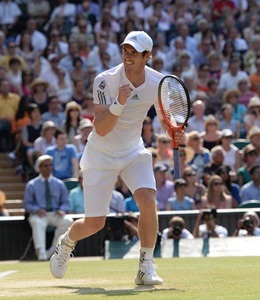 In the light of previous sporting posts it would seem improper not to refer to Andy Murray’s historic men’s singles tennis victory at Wimbledon – the first by a Briton in 77 years. Can we link his achievements with ‘change and improvement’?
In the light of previous sporting posts it would seem improper not to refer to Andy Murray’s historic men’s singles tennis victory at Wimbledon – the first by a Briton in 77 years. Can we link his achievements with ‘change and improvement’?
One key element worth reflecting upon is Murray’s level of improvement in the last 12 months since working with new coach Ivan Lendl. This period has seen Murray win Olympic gold and also achieve a first grand slam title at the US Open; an ascencion in the sport which culminated in Sunday’s epic Wimbledon final. Ahead of these breakthrough achievements, Murray’s quote following the 2012 French Open is notable:
“There’s not been one radical change. A lot of it is minor details. But if you pick 10 small things to work on and change, that can turn into a big difference.” Andy Murray
This reminds me of a previous post; British cycling coach Dave Brailsford applies the same philosophy in bringing his team to world-conquering levels of performance. They key is that these cases hold a common belief in learning and continuous improvement – they see significant change as a set of small, relevant (and often testable) improvements – working on the system to improve capability.
Change which is focused on these aspects enables you to influence your success; work on what you CAN influence in the reasonable hope that improvements will overcome the factors over which you have no control (like the weather or how well the other person is playing). More effective thinking like this may help our teams, our services, our performance, our generation of knowledge to become even better.
Covey, S. (1989) 7 Habits of Highly Effective People, Simon & Shuster, New York, NY.
Deming, W.E. (1993) The New Economics, MIT CAES, Cambridge MA.
Juran, J. (1989) Juran on Leadership For Quality, The Free Press, NY
